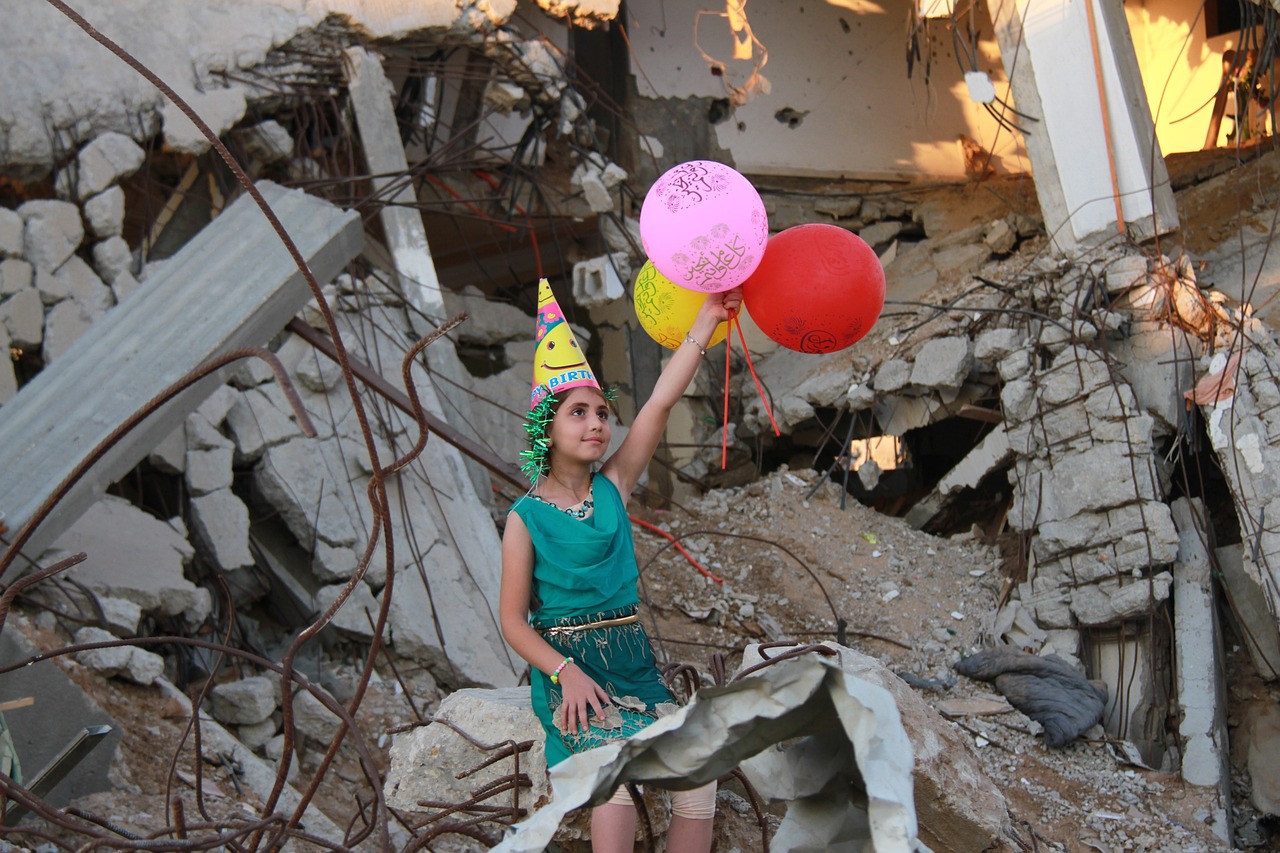Amna is Responding to a Growing Mental Health Crisis in Palestine

Most of Gaza’s 2.3 million people are displaced. Thousands have been killed and in addition to living under the constant threat of bombings, people are also suffering a growing humanitarian crisis, with severe shortages of food, water and medical aid.
The impact of this situation on peoples’ wellbeing is devastating. Palestinians are reeling from the trauma of losing their homes, seeing their neighborhoods destroyed and loved ones wounded or killed. The combined toll of death, destruction and breakdown of basic services is fueling a mental health crisis which requires an urgent response.
Training frontline workers to provide trauma-informed care
At Amna, we believe that emergency response and recovery efforts must go beyond basic needs and medical care and include comprehensive local, identity and trauma-informed mental health interventions to enable people to deal with the devastation. Our work centres joy and belonging as an antidote to the dehumanization experienced by people due to war and oppression.
Despite the ongoing war and some recommendations to wait for a ceasefire before launching a comprehensive programme, Amna responded to requests from organizations on the ground to provide training and tools during the current crisis. In May 2024, with support from local humanitarian organizations, we launched a training programme delivered in Arabic by a Palestinian trainer. This initiative equips frontline humanitarian workers and caregivers with creative expression and other tools to help children and adults safely release stress and trauma from their bodies, fostering inner safety and resilience.
The evidence-based tools and approaches we share as part of the training include rhythm, movement, art, mindfulness, and storytelling activities that can be practiced anywhere without the need for additional materials. During the training sessions, participants actively engage in activities facilitated by Amna’s trainers and are encouraged to adapt these techniques to suit their specific contexts and the needs of the groups they support.
The training materials focus on building an understanding of how trauma impacts children and adults and what techniques can be used to support people through grief and loss. It trains people to learn self-regulation amidst war and destruction and ways to nurture collective identity, community and keeping joy alive to sustain resilience through terror and devastation.
Our impact
To date, we have trained 153 participants from 43 different organizations across Palestine. These include participants from UN agencies such as UNICEF and UNRWA, international NGOs such as War Child, Save the Children and over thirty local organizations such as Rawan Association for Child Development, Save Youth Future Society, Stars of Hope, Yes Theatre for Communication Among Youth and Juzoor for Health and Social Development. In partnership with the Ministry of Education, we also trained teachers to provide trauma-informed care to students. Since announcing the latest training session in December 2024, 75 participants have registered. Due to lack of resources, we were forced to close registration at this number.
Many participants face significant challenges such as poor internet connectivity and difficult conditions but remain determined to reconnect each time to complete the training, demonstrating their strong commitment and the urgency of the need for psychosocial support in Palestine.
Recognizing that the tremors of these current events will be felt for years to come, we are committed to working in Palestine for a minimum of three years and are working to establish long-term partnerships with local communities.
Fundraising to expand our Palestine Response
We are raising funds to launch a transformative Community Partnerships Program in Palestine, a three-year initiative to empower local organizations with the tools and training needed to deliver trauma-informed, culturally sensitive mental health and psychosocial support (MHPSS). This program will strengthen grassroots organizations—the first responders in times of crisis—by equipping them to support children, young people, and caregivers to process trauma, build resilience, and foster long-term healing.
Our approach draws on over seven years of experience working with refugee communities and training frontline organizations. We will provide tailored training, grants for program implementation, and continuous mentoring to ensure local partners can effectively integrate trauma-sensitive, identity-informed practices into their work. This program also includes our “Help the Helpers” initiative, offering essential well-being support to frontline workers. By supporting us, you canl help build a resilient, community-led system of care in Palestine that offers sustainable, life-changing support during and beyond emergencies.

